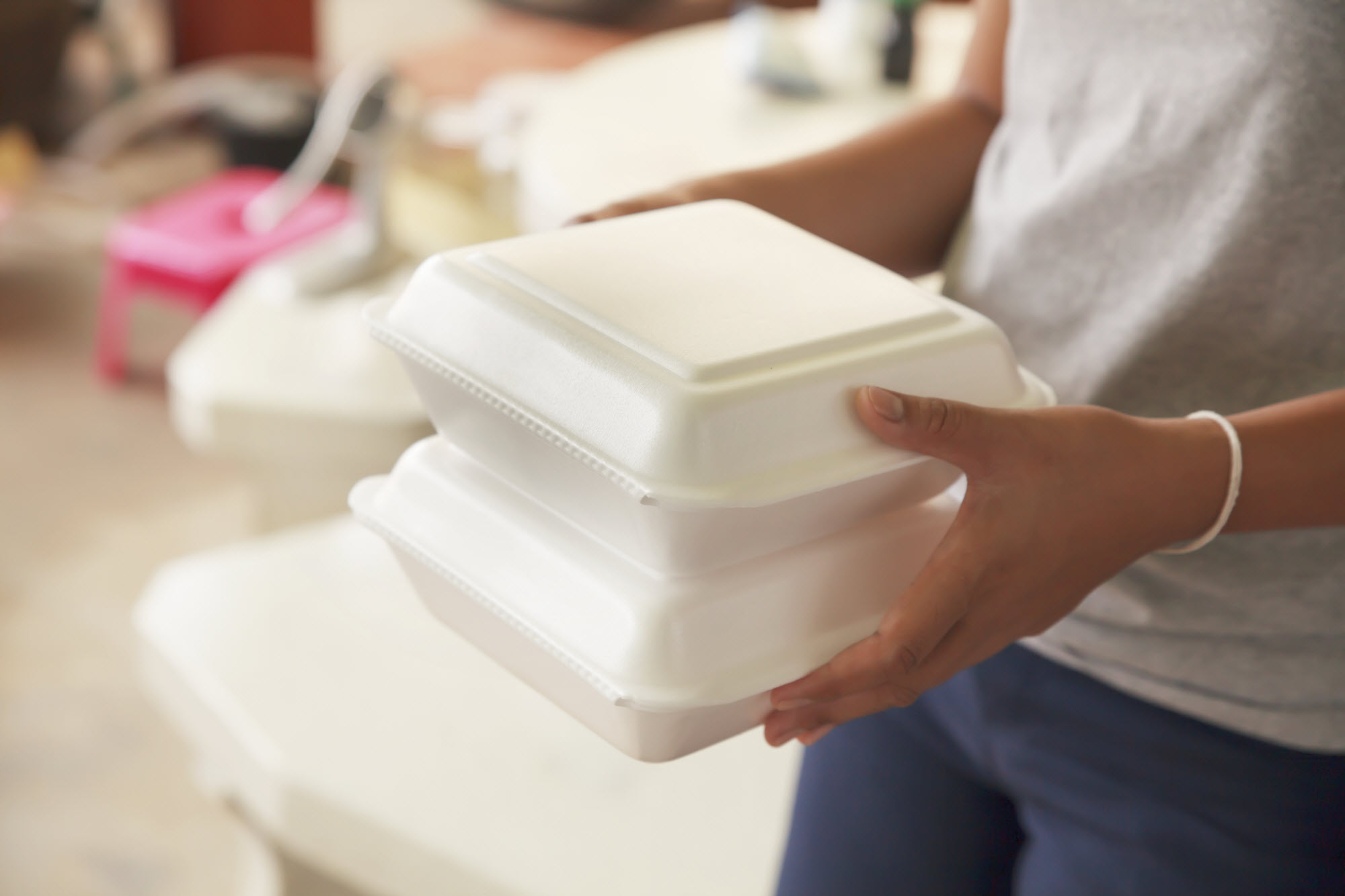As of July 1, 2020, Maryland food service businesses are prohibited from using food service products made of expanded polystyrene, commonly known by the trade name Styrofoam. The law was enacted by the Maryland General Assembly (Chapter 597, Acts of 2019) and is enforced by your county and Baltimore City.
If improperly discarded, the lightweight cups and containers often become litter that can end up in the Chesapeake Bay or other water bodies, harming our marine life and polluting waters.
Frequently Asked Questions:
What does the Expanded Polystyrene ban law do?
The law prohibits any person from selling or offering for sale in the state an expanded polystyrene (EPS) food service product. It also prohibits a food service business or school from selling or providing food or beverages in EPS foam food service products. The law does not prohibit a person from storing an EPS food service product for later distribution outside Maryland (Environment Article, 9-2201—9-2207, Annotated Code of Maryland).
What types of products are affected by the law?
The ban applies to EPS food service products. The law defines an EPS food service product as a product made of EPS that is:
- Used for selling or providing food or beverages; and
- Intended by the manufacturer to be used once for eating or drinking or generally recognized by the public as an item to be discarded after one use.
EPS food service products include food containers, plates, hot and cold beverage cups, trays, and cartons for eggs or other food. EPS food service products do NOT include:
- Food or beverages that have been packaged in EPS containers before receipt by a food service business;
- A product made of EPS that is used to package raw, uncooked, or butchered meat, fish poultry, or seafood; or
- Non-foam polystyrene food service products.
What types of businesses are affected by the law?
The law will prohibit any person from selling or offering for sale in the state an EPS food service product. This would affect EPS food service product manufacturers, distributors, and retailers.
The law will also prohibit a food service business or school from selling or providing food or beverages in EPS foam food service products. A food service business means a business in the state that sells or provides food or beverages for consumption on or off the premises. This includes a business or institutional cafeteria, including one operated by or on behalf of state or local government. A school means a public or nonpublic elementary or secondary school, and an institution of higher education.
When do I need to comply?
The statewide prohibitions are effective beginning July 1, 2020.
What types of products can I use instead of EPS?
The law prohibits EPS food service products but does not mandate a particular alternative product. There are many alternatives available. Where possible, you can replace single use food service products with reusable ones. Where that is not possible, there are a variety of non-EPS alternatives, including products made of plastic, paper, plant fiber, and aluminum. When selecting an alternative product, you may wish to consider cost and the desired use of the product (for example, whether the food or drink is hot or cold).
Another important consideration is whether the alternative product is recyclable or compostable – not all EPS alternatives are. Because the types of materials that are accepted in different recycling programs vary, it is important to speak with your recycling or compostable materials collection company to find out what is accepted.
The Montgomery County Department of Environmental Protection has compiled a list of non-EPS food service vendors and products at https://www.montgomerycountymd.gov/sws/expanded-polystyrene/.
How will the law be enforced?
The law requires counties to enforce the prohibition on EPS food service products. Each county may choose how to enforce the law, including through its local health department or environmental department. Counties are authorized to impose penalties of up to $250 for violations, after written notice and an opportunity to correct the violation.
Note that the law does not prohibit counties or municipalities from having their own, broader laws banning EPS products. In fact, more than half of Maryland residents reside in jurisdictions (either on a county or municipal level) where an EPS ban was in existence before the state ban, the most recent being Baltimore City, whose ban became effective in October 2019.
What if I am unable to comply by July 1, 2020?
The Maryland Department of the Environment (MDE) is authorized to issue a waiver from EPS food service product prohibition to a food service business or school for a period of up to one year under certain circumstances. In order to request a waiver, please send a written request by email or letter to the address below. You must explain why compliance with the ban would pose an undue hardship or practical difficulty not generally applicable to other food service businesses or schools in similar circumstances.
John Sullivan john.sullivan1@maryland.gov
Resource Management Program
Source: Maryland Department of the Environment, 1800 Washington Blvd, Suite 610, Baltimore, MD 21230








